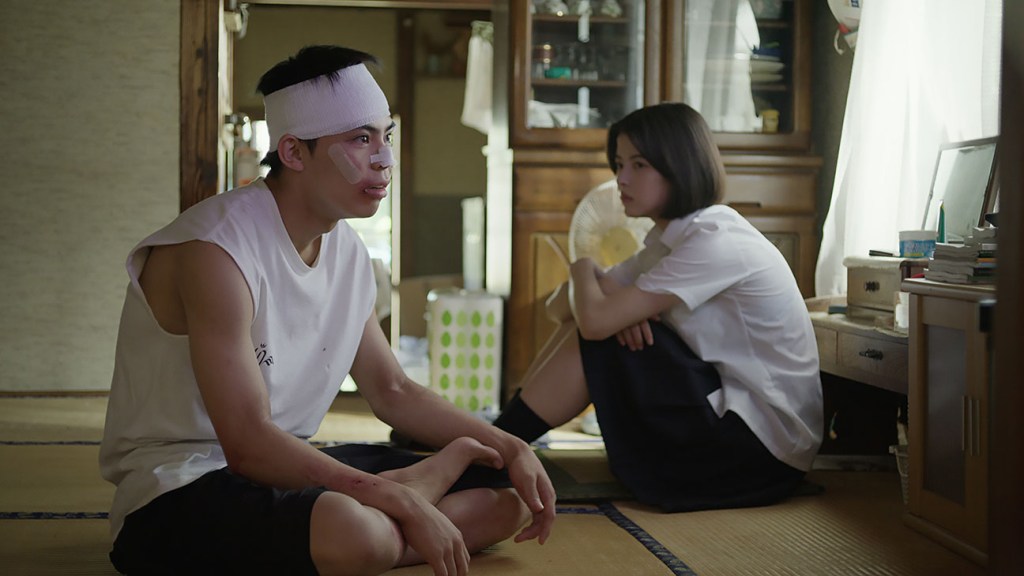
Receiving its world premiere at the Oldenburg International Film Festival, From Dawn Till Noon on the Sea proves a quietly unnerving and ultimately uplifting drama marked by its visual beauty and narrative restraint. This tale of three troubled souls reveals Japanese filmmaker Takayuki Hayashi to be an impressive talent with his feature directorial-screenwriting debut, which should garner attention on the festival circuit and merits international arthouse exposure.
Adapted from a manga by Shun Umezawa, the film establishes its solemnity from its opening seconds featuring a black screen, ominous whistling wind, and then a Biblical verse about a lost sheep. That could refer to any of the major characters in the story, which begins with a news report about a teenage schoolgirl, Mai (actress/model Hanon), who was kidnapped by a 20something man and confined to his apartment for 49 days, suffering from PTSD as a result.
From Dawn Till Noon on the Sea
The Bottom Line
Spare in its style, haunting in its effect.
Venue: Oldenburg International Film Festival
Cast: Hanon, Yu Uemura, Kaito Yoshimura
Director-screenwriter: Takayuki Hayashi
1 hour 17 minutes
Returning to school, Mai keeps to herself, mostly ignored by her fellow students who gossip about how they think she slept with her captor for money. She remains silent even when a few female classmates offer to help her with anything she might need. In her isolation, she finds herself drawn only to Ujie (a charismatic Yu Uemura), a disaffected, bullied student, who, when first seen, is being viciously criticized by his teammates for causing them to lose a baseball game by getting into a fight. He frequently acts out, overtly goofing off in class and talking back to his teacher.
When Ujie finds his desk chair missing one day, he gets physically rough with another student, who says he had nothing to do with it. Before he can seriously hurt the much smaller boy, Mai gently embraces him, clearly recognizing another damaged spirit. Later, he confronts her over the intervention, sneeringly asking, “You think you’re Mother Teresa?” The bond between the two intensifies after Ujie is jumped and brutally beaten up by a gang of kids and Mai later shows up at his home and makes a surprising offer.
Interspersed throughout the film are numerous flashbacks depicting Mai’s time with her captor (Kaito Yoshimura), who seems to mean her no harm and appears to be suffering from severe depression. Sounding like a character in an Ingmar Bergman film, he somberly tells her, “I’ve lost all hope for the world. No purpose, nor meaning. It’s just an enormous machine that moves like clockwork. And we’re forced to be part of it with no explanation whatsoever until we die.” Despite his despondency, it becomes clear that she was clearly not physically or sexually abused by him during her time in confinement, which ends in unpredictable fashion.
Eliciting powerful performances from his three lead actors, Hayashi employs measured pacing and elegantly composed visuals to create a hauntingly spare, poetical effect. As might be guessed from the title, the sea emerges as a visual touchstone throughout the somber proceedings, eventually serving as the setting for a climactic scene that ends the film on a deeply moving grace note of redemption for each of its troubled characters.













